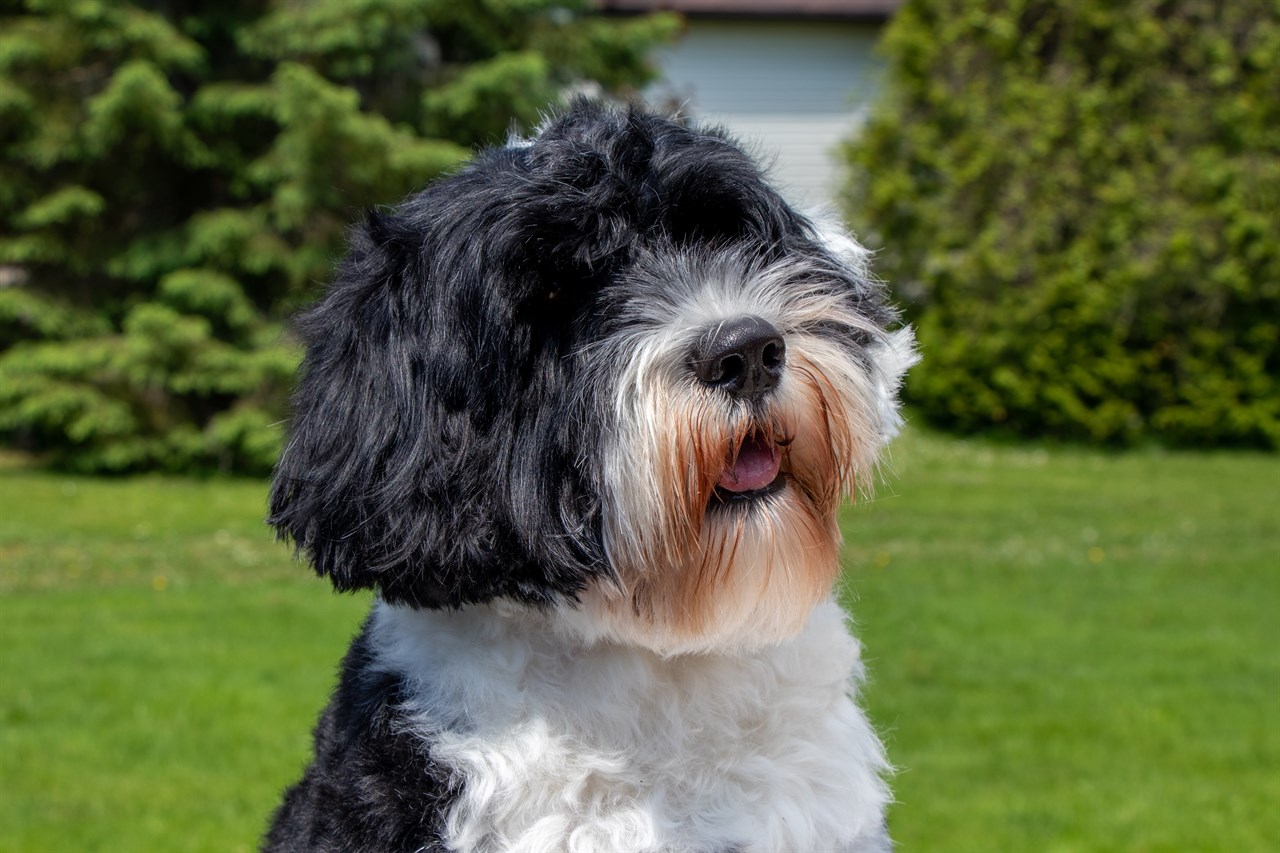Feeding Habits and Food Requirements of the Portuguese Water Dog

Proper nutrition is essential to keep your Portuguese Water Dog (PWD) healthy, active, and happy. Understanding their feeding habits and dietary requirements can help ensure they receive the nutrients they need to thrive.
Feeding Schedule
Establishing a regular feeding schedule is important for PWDs. Most adult dogs do well with two meals per day, one in the morning and one in the evening. Puppies may require more frequent feedings, typically three to four times a day, to meet their growing needs. Consistency in meal times helps regulate their digestive system.
High-Quality Dog Food
Choose a high-quality commercial dog food that meets the nutritional standards set by reputable organisations such as the Association of American Feed Control Officials (AAFCO). Look for options labelled "complete and balanced" for your dog's life stage, whether they are a puppy, adult, or senior.
Portion Control
Portion control is essential to prevent overfeeding or underfeeding. Follow the recommended feeding guidelines provided on the dog food packaging, but remember that individual dogs may have varying caloric needs. Monitor your PWD's weight and adjust portions accordingly.
Protein
Protein is a crucial component of a dog's diet, and PWDs benefit from a diet with moderate to high protein content. Look for dog food with high-quality animal protein sources, such as chicken, turkey, or fish. Protein supports muscle development and overall health.
Healthy Fats
Fats are a source of essential fatty acids, which are important for your PWD's coat health and overall well-being. Look for dog food that contains healthy fats like omega-3 and omega-6 fatty acids, often sourced from fish or flaxseed.
Carbohydrates
While dogs are omnivores and can digest carbohydrates, PWDs don't require excessive amounts of grains in their diet. Look for dog foods with whole grains like brown rice or oats, or grain-free options if your dog has specific dietary preferences or sensitivities.
Fresh Water
Always provide access to fresh, clean water. Hydration is essential for your dog's health, especially for an active breed like the PWD.
Avoid Harmful Foods
Certain foods are toxic to dogs and should be avoided. These include chocolate, grapes, raisins, onions, garlic, and xylitol (a sugar substitute). Be aware of common household items that can be harmful if ingested.
Special Dietary Considerations
Some PWDs may have specific dietary requirements or sensitivities. Consult with your veterinarian if you suspect your dog has food allergies or intolerances. They can recommend appropriate dietary changes or hypoallergenic foods.
Weight Management
Maintaining a healthy weight is crucial for PWDs, as they are prone to joint issues. Monitor your dog's weight and adjust their diet and exercise routine as needed to keep them at an ideal weight.
In conclusion, feeding your Portuguese Water Dog a well-balanced diet tailored to their life stage and activity level is essential for their health and longevity. Consult with your veterinarian for personalised dietary recommendations, and be mindful of portion control to prevent overfeeding. Providing proper nutrition will help your PWD lead a happy and active life.
Portuguese Water Dog puppies for sale
- Find Portuguese Water Dog puppies for sale in ACT
- Find Portuguese Water Dog puppies for sale in NSW
- Find Portuguese Water Dog puppies for sale in NT
- Find Portuguese Water Dog puppies for sale in QLD
- Find Portuguese Water Dog puppies for sale in SA
- Find Portuguese Water Dog puppies for sale in TAS
- Find Portuguese Water Dog puppies for sale in VIC
- Find Portuguese Water Dog puppies for sale in WA